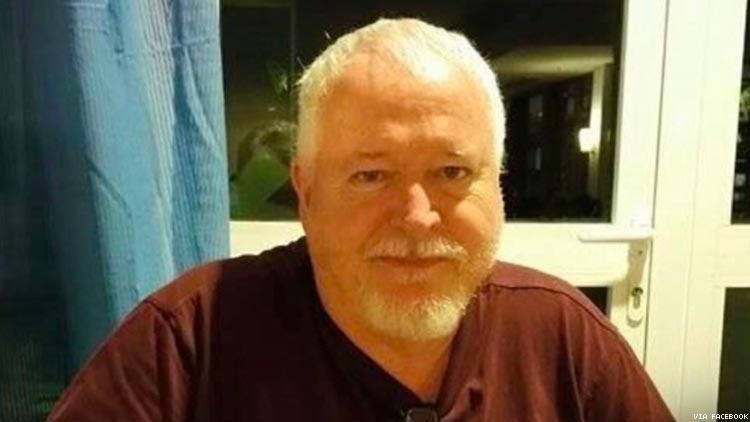Internships Cost Job Seekers £1,000 A Month In London And £827 In Manchester
The cost of undertaking an unpaid internship to land a job in “desirable sectors” will now set a jobseeker back £1,019 a month in London and £827 in Manchester.
According to The Sutton Trust, people from low and moderate-income backgrounds are being prevented from accessing internships – which are “increasingly seen as a requirement before a first job” due to rising rents in the two centres and inflation.
Separately, research carried out for the Trade Union Congress found that 78% of 18-34 year olds could not afford to live in London away from home to become an unpaid intern.
The Trust said that 40% of young people who have carried out an internship have done at least one of them unpaid, leading to concerns that “the significant costs associated with unpaid internships are shutting many less advantaged young people out of careers”.
The Trust is calling for all internships over four weeks (£4976 in London, £3308 in Manchester) to be paying at least the minimum wage of £7.50 per hour and “ideally” the Living Wage of £8.56 (£10.20 in London).
It also recommends that internships are advertised publicly and that recruitment processes are “fair, transparent and based on merit”.
“Failure to do so prevents young people from low and moderate-income backgrounds from accessing jobs in some of the most desirable sectors such as journalism, fashion, the arts and politics,” the Trust report – Internships – unpaid, unadvertised, unfair – states.
The Trust cited the recent Taylor review, which examined modern working practices, in its report. The review concluded that “it is clear to us that unpaid internships are an abuse of power by employers and extremely damaging to social mobility”.
Minimum wage legislation makes many unpaid internships illegal “but the law is not properly enforced”, the Trust said, citing, as evidence, the fact the government recently confirmed that there have been no recorded prosecutions in relation to interns and the National Minimum Wage.
Key Points: • Organisations continue to offer internships which are unpaid, and offer internships without formally advertising them. • A internship would cost a single person £1,019 a month in London and £827 in Manchester. • Over 40% of young people who have carried out an internship have done at least one of them unpaid. • There are 70,000 interns in the UK at any one time. • Roughly 10,000 graduates are carrying out an internship at six months post-graduation, with 20% of them doing so unpaid. • There are concerns that some employers are either unaware that their interns should be paid, or that some employers are exploiting the lack of clarity in the law to avoid paying their interns.
The Sutton Trust said that since 2014, there has been “some moves in the right direction” by employers, such as Pret a Manger, who started paying their interns. The Brit Awards also introduced 10 paid internships to help “open up access to the music industry”, it said, and there are reports that publishing houses are increasingly introducing paid internships.
However, the Trust lamented that organisations were continuing to advertise for unpaid interns online and through “informal networks”.
Examples of internships advertised this month which the Trust highlighted include – a major fashion designer who was looking for an unpaid design intern to work for two-to-three months in the lead-up to their London Fashion Week show and an MP who advertised a six-month internship with “no set hours and only expenses covered”.
The role involved undertaking research, analysis and briefings on upcoming issues, the Trust said. It declined to name the MP.
“Given that MPs are already considerably more likely to be from a privileged background than the constituents that they represent, it is extremely disappointing that MPs continue to offer unpaid internships, locking less well-off young people out of politics,” the report reads.
“Additionally, concerns have also been raised by the APPG on Social Mobility that internships in politics are often given out to family and friends of politicians, rather than being openly advertised.”
In the UK there are around 70,000 internships each year and research by the Trust shows that 10,000 graduates are in unpaid internships six months after graduation, “though many more will do them at other times”.
There are no official figures on the number of interns in the UK, but IPPR analysis has found that around 11,000 internships per year are formally advertised online and an annual survey by the the Department for Education found that 6% of businesses surveyed providing some form of paid or unpaid internship.
However, the graduate careers guidance service Prospects carried out an online survey of almost 9,000 16-25 year olds in 2017 and found that 48% had undertaken an unpaid internship.
The Trust is backing a bill by Conservative peer Lord Holmes of Richmond “tightening” minimum wage legislation to ban unpaid internships over four weeks long. The bill is also been supported by the All-Party Parliamentary Group on Social Mobility and the government’s Social Mobility Commission, the Trust noted.
Sir Peter Lampl, Founder and Chairman of the Sutton Trust and Chairman of the Education Endowment Foundation, said: “Around 40% of young people who have carried out an internship have done so unpaid. All internships over four weeks should be paid at least the minimum wage of £7.50 per hour. Failure to do so prevents young people from low and moderate-income backgrounds from accessing jobs in some of the most desirable sectors such as journalism, fashion, the arts and politics.
“All internship positions should be advertised publicly. Large numbers of internships are never advertised and instead offered through informal networks. This practice locks out young people without connections. Also, the process by which potential candidates are selected for internships should uphold the same standards of recruitment as for other jobs.”
Unpaid internships, the Trust said, are a “particular problem” in sought-after professions such as the arts and media, where the Social Mobility Commission has reported a dramatic rise in the number of unpaid internships.
Sharon White, CEO of the broadcasting regulator Ofcom, recently called on TV executives to stop using unpaid internships, due to concerns that they are limiting access to the industry.
While the Trust said “the best unpaid internships can kick-start a career, there is evidence that undertaking an unpaid internship can actually reduce future earnings”. Recent work from the Institute for Social and Economic Research, it said, found that three years after graduating, former unpaid interns earned less than those who went immediately into paid work or further study.
What can unpaid interns do to challenge their pay? The Sutton Trust says: “An unpaid intern can report an organisation to the government’s Pay and Work Rights Helpline, or can take a case to a tribunal. However, this is a potentially difficult process for an intern who is relying on their placement to help them break into an industry, and risks them losing access to the references and contacts that they have worked unpaid to build. “Additionally, even if an intern does take a case to a tribunal, under the current law an employer often can still claim that the intern was under no obligation to attend work, or had no obligation to give notice that they would no longer attend – making them unentitled to the minimum wage.”
The Sutton Trust’s recommendations:
1) All internships longer than one month should be paid at least the National Minimum Wage To open up access to internship opportunities, interns should be paid at least the National Minimum Wage (£7.05 per hour for 21-24 year olds, or £7.50 for over 25s). Preferably, interns should be paid the Living Wage of £8.75 (or London Living Wage, £10.20, in London). The current law should be tightened to ban unpaid internships over four weeks in length.
2) Internship positions should be advertised publicly, rather than being filled informally Large numbers of internships are never advertised, and instead offered through informal networks, for example to friends or family of staff. This practice locks out talented young people without connections, limiting their opportunities and hampering their social mobility. All internships should be advertised publicly, so that regardless of connections, all potential applicants can apply.
3) Recruitment processes should be fair, transparent and based on merit As well as being openly advertised, the process by which potential candidates are selected for internships should be fair and transparent – upholding the same standards of recruitment as other jobs. All internships should be awarded on merit to the best candidate, not based on personal connections.
www.huffingtonpost.co.uk/entry/internships-the-sutton-trust_uk_5a6ef406e4b01fbbefb3860b


 #1 [Belleza, Signature & Omega] Appliers”>
#1 [Belleza, Signature & Omega] Appliers”>





